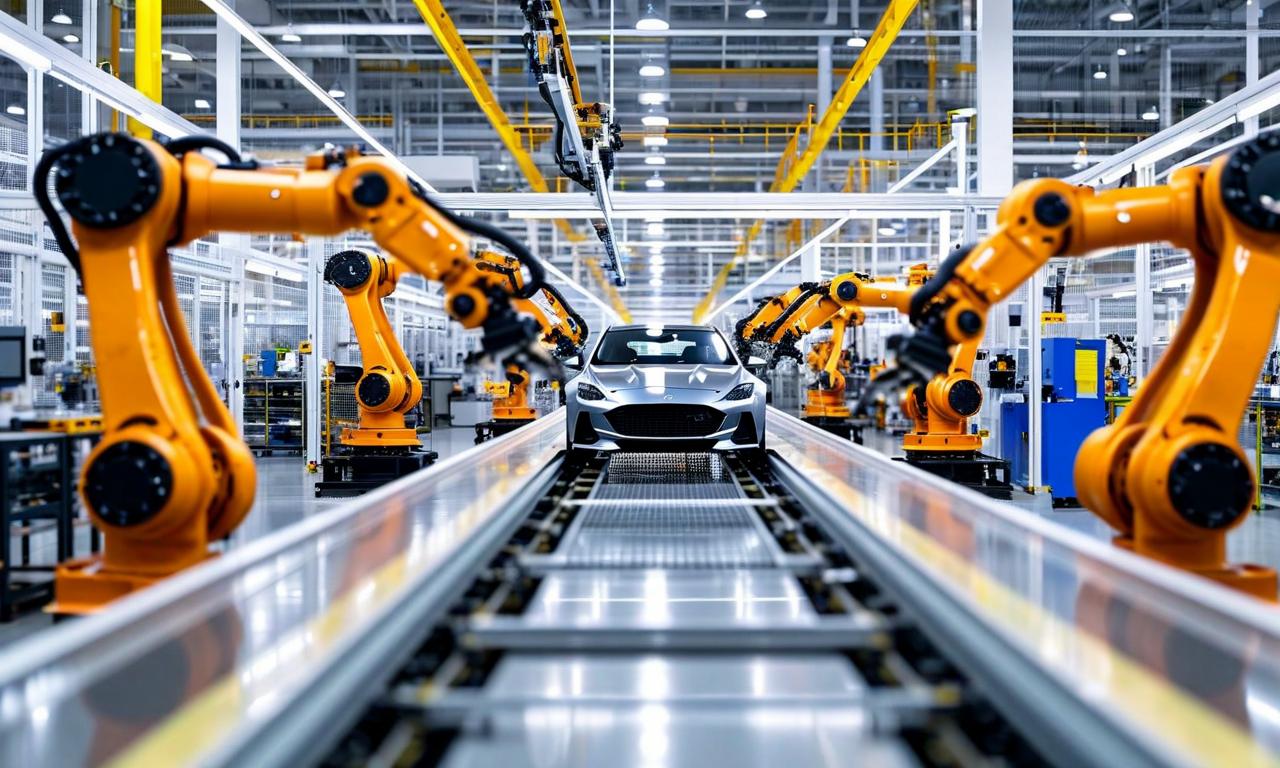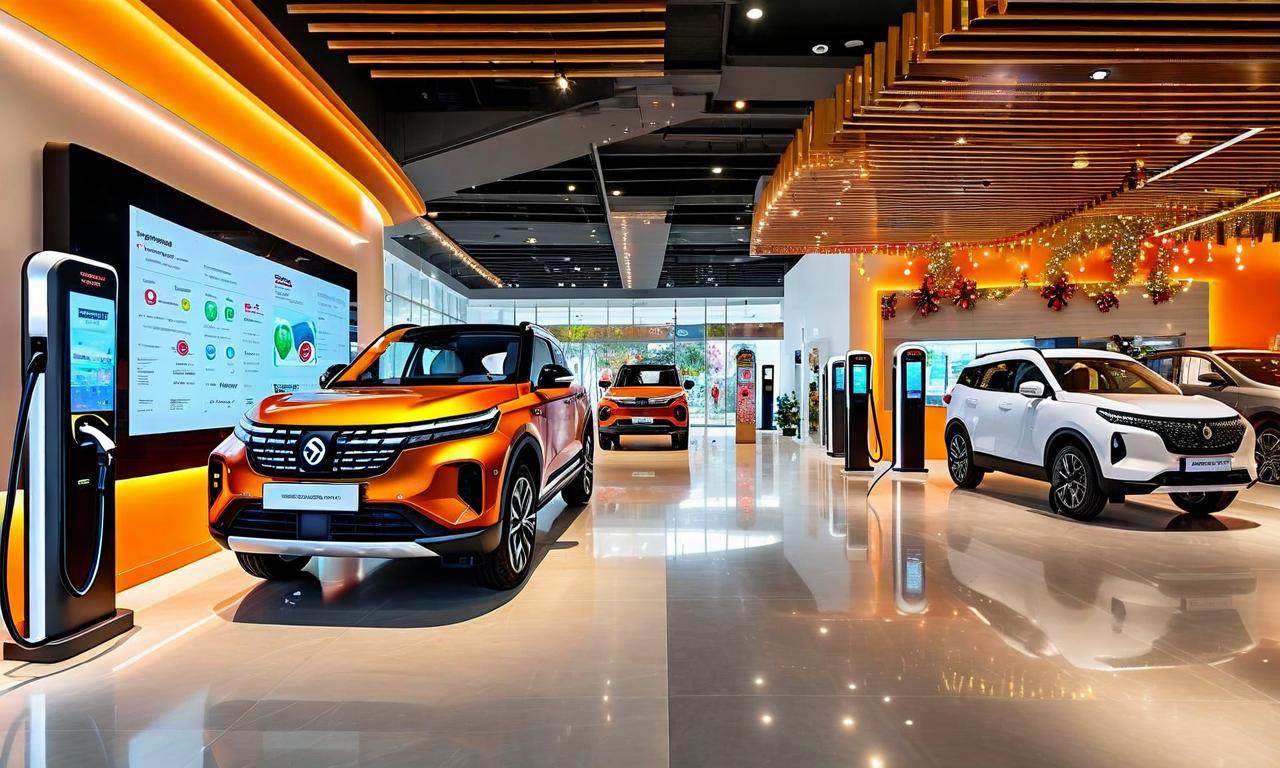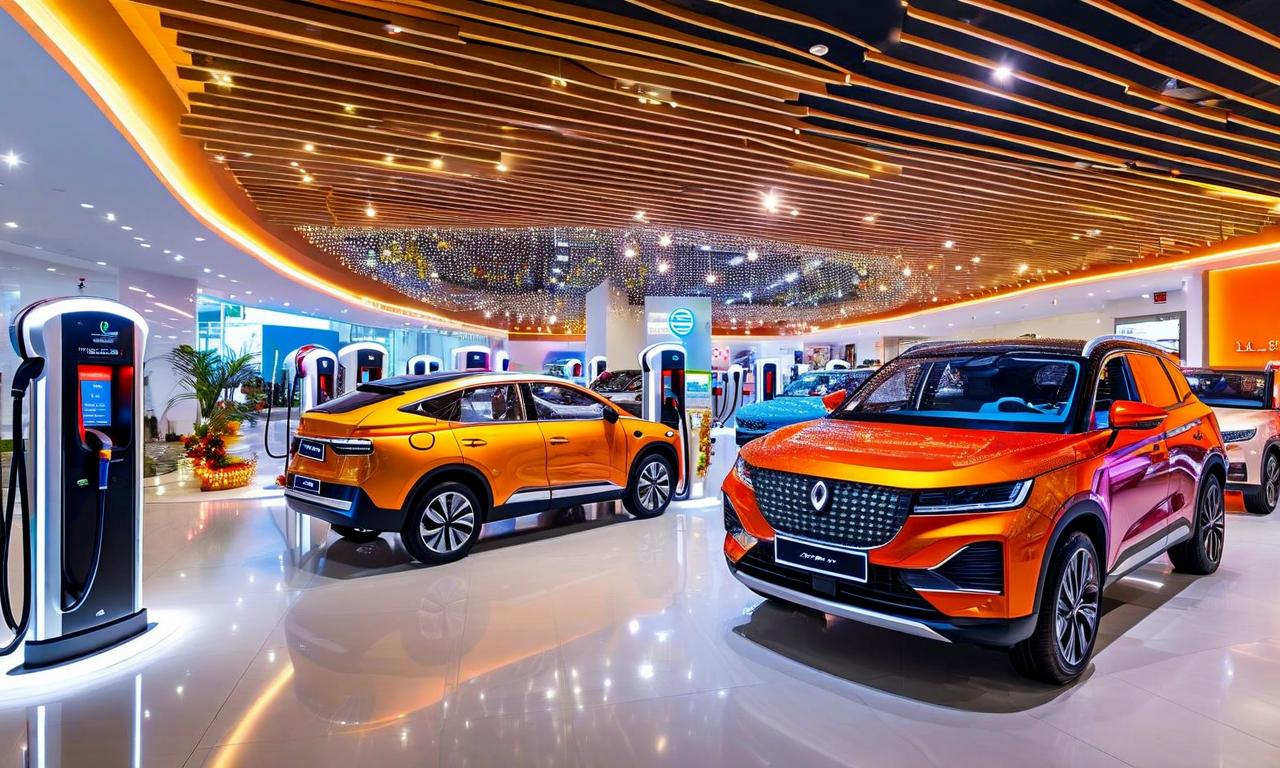Tata Motors Reports Mixed Q3 Results, Launches Euro 6 Commercial Vehicles in GCC
Tata Motors reported Q3 consolidated revenue of ₹119.50K crores, up 0.40% YoY. JLR achieved record Q3 revenue of £7.70 billion with 15.30% EBITDA margin. Commercial Vehicles revenue declined 0.50% to ₹21.50K crores. Passenger Vehicles revenue fell 13.10% to ₹12.50K crores, but maintained 55.40% EV market share. The company reduced net automotive debt to ₹19.00K crores and received ₹209 crores under the PLI scheme. Tata Motors plans to rename TML Commercial Vehicles Limited to Tata Motors Limited and is progressing with its demerger plans.

*this image is generated using AI for illustrative purposes only.
Tata Motors, one of India's leading automotive manufacturers, has released its financial results for the third quarter, showcasing a mixed performance across its various segments. The company's consolidated revenue remained relatively stable at ₹119.50K crores, a marginal increase of 0.40% compared to the same period last year.
Key Financial Highlights
| Metric | Q3 Value | Change (YoY) |
|---|---|---|
| Consolidated Revenue | ₹119.50K crores | +0.40% |
| EBITDA | ₹16.70K crores | N/A |
| JLR Revenue | £7.70 billion | Record Q3 |
| JLR EBITDA Margin | 15.30% | N/A |
| CV Revenue | ₹21.50K crores | -0.50% |
| CV EBITDA Margin | 12.20% | N/A |
| PV Revenue | ₹12.50K crores | -13.10% |
| EV Market Share | 55.40% | Maintained |
| Net Automotive Debt | ₹19.00K crores | Reduced |
Segment Performance
Jaguar Land Rover (JLR)
JLR emerged as a strong performer this quarter, achieving record Q3 revenue of £7.70 billion. The luxury car division also reported an EBITDA margin of 15.30%. Additionally, JLR launched a new brand positioning for Jaguar, potentially setting the stage for future growth in the luxury segment.
Commercial Vehicles (CV)
The Commercial Vehicles segment faced a slight decline, with revenue dropping by 0.50% to ₹21.50K crores. However, the division maintained EBITDA margins of 12.20%, demonstrating operational efficiency despite the revenue dip.
Tata Motors Commercial Vehicles unveiled its largest product showcase in the Gulf Cooperation Council (GCC), launching a complete range of Euro 6-compliant trucks and buses for the Middle East and North Africa region. The Dubai event featured passenger mobility solutions including the LPO 1622 bus in 11-meter and 12-meter versions, the 28-seater Starbus Prime LP 716, and the 33-seater Ultra LPO 916. Cargo solutions include the Ultra range in 7-19 tonne configurations for logistics, the Prima 3430.T with 300 HP for long-haul operations, and the Prima 4440.S AMT with automatic transmission.
Passenger Vehicles (PV)
Tata Motors' Passenger Vehicles segment encountered challenges this quarter, with revenue declining by 13.10% to ₹12.50K crores. Despite increased competition in the electric vehicle (EV) market, the company maintained its EV market share at 55.40%, highlighting its strong position in this growing segment.
Strategic Developments
PLI Scheme: Tata Motors received an eligibility certificate under the Production Linked Incentive (PLI) scheme, accruing ₹209 crores for past periods. This development may boost the company's manufacturing capabilities and competitiveness.
Demerger Progress: The company continues to make progress on its planned demerger, with an expected appointed date of July 1, 2025. This strategic move aims to create more focused businesses and potentially unlock shareholder value.
Debt Reduction: Tata Motors has reduced its net automotive debt to ₹19.00K crores, with the domestic business returning to a net cash positive position. This improvement in the balance sheet strength provides the company with greater financial flexibility.
Restructuring Plan: The company has announced plans to rename TML Commercial Vehicles Limited to Tata Motors Limited, with new shares to be listed on Indian stock exchanges after regulatory approval.
Outlook
While Tata Motors faces challenges in certain segments, particularly in the passenger vehicle market, the company's strong performance in the JLR division and its maintained leadership in the EV segment demonstrate resilience. The ongoing strategic initiatives, including the demerger process, participation in the PLI scheme, and expansion into new markets with Euro 6-compliant vehicles, position Tata Motors to navigate the evolving automotive landscape.
As global economic uncertainties persist and competition in the EV market intensifies, Tata Motors' ability to innovate, maintain operational efficiency, and capitalize on its strengths across diverse segments will be crucial for its future performance.
Tata Motors, part of the $180 billion Tata Group, manufactures commercial vehicles from sub-1-tonne to 60-tonne trucks and operates across India and South Korea with global distribution, further solidifying its position as a major player in the global automotive industry.



































